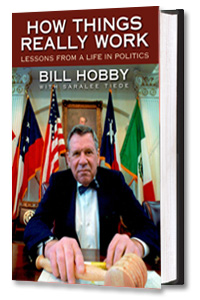Enough, already!
During the last political season we have all been harassed in our homes by countless robocalls from rude people who want us to vote for them because they invaded our privacy.
Let’s put a stop to it! We can protect ourselves from computer spam by blocking the sender. Let’s do the same for our telephones.
Here’s how it could work:
Telephone companies have “star codes” that mostly don’t work. “*67” is supposed to block the calling number from calling in the future. It doesn’t.
Let’s require by law telephone companies to have a new star code “***” that works. That code would block the calling number. If the caller persists in using the phone system to harass the public make the phone company cut off service to the harasser, on pain of heavy fines not includible in the rate base.
Technical problems? Heavy fines will solve them.
There have been unsuccessful attempts to stop this nuisance before. The “free speech” issue has been raised by such notable defenders of our freedoms as insurance companies, debt collectors, and—yes— newspaper publishers, Congress and several states have passed laws, ineffective because they exempt the main offenders: charities, politicians, nonprofit organizations, debt collectors, insurance companies, newspaper publishers, government agencies.
That’s like saying that only sex offenders can grope you.
Cumbersome and probably useless “no-call” lists have been established so that those who do not want to be ravished again can list themselves. That’s putting the burden on the victim, not the harasser. One such list, the National Political Do Not Call Registry, actually requires you to pay for the privilege of not being harassed.
Your tax dollars at work!
Efforts in Texas to abate the nuisance go back to 1999 when State Representative Debra Danburg tried to establish a state do-not-call list. The bill never got out of committee because insurance salesmen and stock brokers were protecting our right to privacy.
In 2001, the Legislature did pass a law purporting to limit the public nuisance. Your own experience in the past few months is the best measure of how effective the law has been. The bill, of course, exempted the usual suspects.
The law has been tweaked every session since. You must feel more secure now that “certain Law-enforcement Charitable Organizations” are now exempt.
The Texas Public Utility Commission is supposed to enforce the law but has never done so because the law is unenforceable—as it was meant to be.
But—never fear— you can always sue for the damages you can prove. That’s if you can find a lawyer who will file the suit for a contingent fee—that is, for a share of the judgment. Or maybe you can get the Attorney General of Texas to sue.
But with *** you could block that pesky neighbor and crazy Aunt Sally, too!
While we’re at it, let’s block the spam in our mail boxes by tripling third-class mail rates every year or so.
Enough, already.
Bill Hobby can be reached at [email protected]

